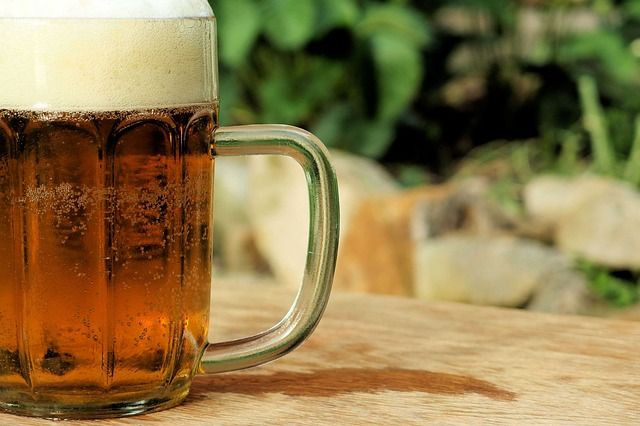Binge Drinking May Cause Genetic Changes In Future Children, Increasing Risk of Depression, Anxiety, And More

Young people who drink aren't just taking a sip or two — the Centers for Disease Control and Prevention reports that about 90 percent of the alcohol that youth drink is consumed during binge episodes. However, as suggested by a recent study, this practice may not only hurt adolescents' health, it could also affect their future children.
The animal study found that offspring of mice who binge drank during adolescence were more likely to have disruptions with specific genes in the hypothalamus region of the brain. These genetic changes increased the offspring’s risk for developing conditions such as depression, anxiety, and metabolic disorders.
Although the research was conducted on mice, in a recent press release, lead study author Dr. Toni R. Pak concluded that these results suggest “adolescent binge drinking not only is dangerous to the brain development of teenagers, but also may impact the brains of their children.”
For the study, the team gave adolescent male and female rats alcohol in amounts that would be comparable to six binge drinking episodes. Then, after the rats became sober, they mated them. In addition, the female rats were kept sober throughout their pregnancies in order to rule out the side effects of fetal alcohol syndrome. The team then analyzed the genes in the offspring's hypothalamus, an area of the brain associated with many functions, including stress response, food intake, and sleep cycles.
Results showed that offspring of binge-drinking mothers had 159 individual gene changes. Offspring of binge-drinking fathers had 93 individual gene changes. However, offspring of two binge drinking parents had 244 gene changes.
Although this may be the first study to show a molecular pathway between teen binge drinking and changes in the neurological health of their future children, it's not the first time researchers have identified the dangers of binge drinking. For example, a British study published last year found that up to 70 percent of all weekend hospital ER admissions were related to excessive alcohol use. And the UK isn’t alone in its binge drinking epidemic. The U.S. National Institutes of Health estimates that nearly a quarter of all people in the U.S. aged 18 or older reported that they had engaged in binge drinking in the past month.
Source: Pak TR, Asimes AD, et al. Binge alcohol consumption during puberty causes altered DNA methylation in the brain of alcohol-naive offspring. Annual Meeting of the Society for Neurosciences. 2016
Read More:
Binge Drinking Causes: Brain Mechanism Study May Lead To Alcoholism Treatment: Read More
For Young Adults, Binge Drinking And High Blood Pressure May Go Hand In Hand: Read He re
Published by Medicaldaily.com



























